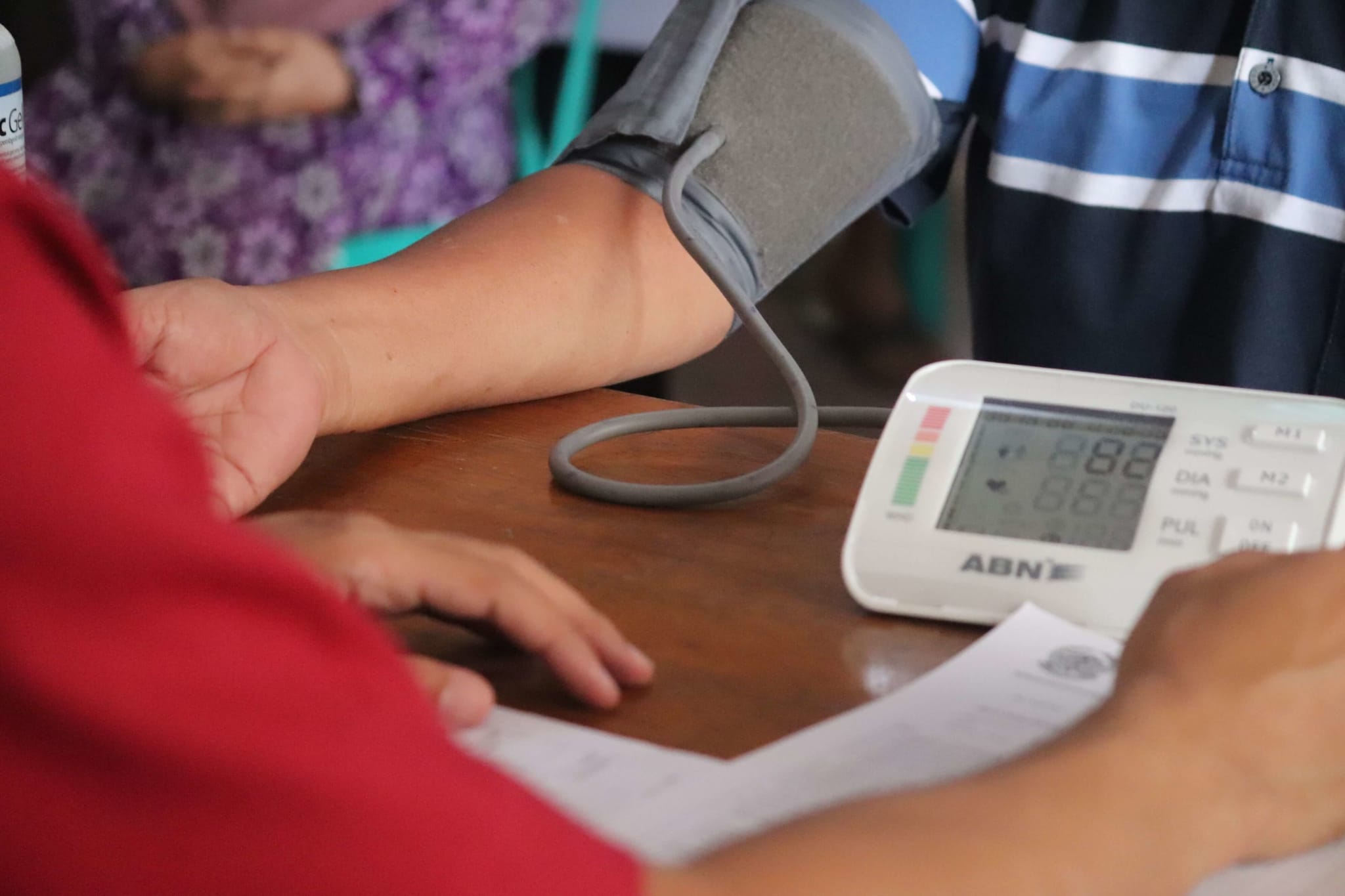Keeping a close eye on elderly parents can be difficult - especially if your job keeps them away from you for large chunks of time, or if they live far away. As our parents age, it's important to make sure they're receiving the healthcare they need to maintain their health and well-being.
Regular check-ups provide the opportunity to review their health with a healthcare provider and ensure that any health concerns are addressed.

Why Should Elderly Parents be Getting Checked Regularly?
A local study has found that the proportion of older adults with three or more chronic diseases nearly doubled from 2009 to 2017.
In fact, approximately 80% of older adults have at least one chronic condition, and 50% have at least two.
Regular check-ups can help to detect and prevent chronic health conditions, and provide the opportunity for elderly parents to address any concerns or questions with their general practitioner or family physician.
In addition to detecting chronic conditions, regular check-ups can improve an elderly parent's overall health and quality of life.
What Are Common Health Screenings and Tests for Older Adults?
1. Blood Pressure Screening

High blood pressure, also known as hypertension, is a common condition that occurs when the blood flow through your arteries is too high. This can put extra strain on your heart and blood vessels, increasing your risk of heart attack, stroke, and other serious health problems.
A stroke is a medical emergency because the damage done is irreversible unless treatment is provided in time. Stroke is the fourth most common cause of death in Singapore, accounting for more than 10 percent of all deaths.
To prevent hypertension, it's important to maintain a healthy lifestyle, which includes eating a healthy diet, getting regular physical activity, and not smoking. You should also try to manage stress and get enough sleep.
If you have high blood pressure, your healthcare provider may recommend lifestyle changes and/or medications to help lower your blood pressure.
2. Cholesterol Screening
Cholesterol is a type of fat found in your blood. High cholesterol levels can increase your risk of heart disease and stroke.
To prevent high cholesterol, it's important to eat a healthy diet that is low in saturated and trans fats, and high in fruits, vegetables, and whole grains. Doing regular physical activities and not smoking also help to lower your cholesterol levels.
If you have high cholesterol, your healthcare provider may recommend lifestyle changes and/or medications to help lower your cholesterol levels.
3. Diabetes Screening
Diabetes is a chronic condition that occurs when your body doesn't produce enough insulin or doesn't use insulin properly. This can lead to high blood sugar levels, which can cause serious health problems if left untreated.
To prevent diabetes, it's important to maintain a healthy lifestyle, which includes eating a healthy diet, getting regular physical activity, and not smoking. You should also try to manage stress and get enough sleep.
If you have diabetes, your healthcare provider may recommend lifestyle changes and/or medications to help manage your blood sugar levels.
4. Cancer Screenings

There are several types of cancer that are more common in older adults, such as breast, colon, and prostate cancer. Regular screenings can help detect these cancers early, when they are most treatable.
Maintaining a healthy lifestyle could help to prevent cancer, this includes eating a healthy diet, getting regular physical activity, and not smoking. You should also try to limit your exposure to known carcinogens, such as certain chemicals and radiation.
If you are at higher risk for certain types of cancer, your healthcare provider may recommend additional screenings or other preventive measures.
5. Flu Vaccine
The flu is a viral illness that can cause serious complications, especially in older adults. It's important to get a flu vaccine every year to prevent the flu.
The flu vaccine can help protect against the most common strains of the virus. In addition to getting a flu vaccine, you can also help prevent the flu by washing your hands frequently, covering your mouth and nose when you cough or sneeze, and avoiding close contact with sick people.
6. Bone Density Test
As people age, they may lose bone density, which can increase the risk of osteoporosis -- a condition that causes bones to become weak and fragile, making them more prone to fractures.
To prevent osteoporosis early, it's important to get enough calcium and vitamin D in your diet, as well as engage in regular weight-bearing physical activity.
If you have osteoporosis or are at risk for it, your healthcare provider may recommend medications or other treatments to help strengthen your bones.
Why Elderly Are Reluctant to Go for Regular Check-Ups?
There are many reasons why elderly people may be reluctant to go for regular check-ups. Some possible reasons include:
- Fear or anxiety about the medical process or the results of the check-up.
- Difficulty getting to the doctor's office or clinic, especially if the elderly person has mobility issues or lacks access to transportation.
- Financial concerns, such as the cost of the check-up or the cost of any necessary treatments.
- Difficulty understanding or remembering the importance of regular check-ups, or difficulty following through with appointments due to cognitive decline or other health issues.
- A belief that the check-up is unnecessary or that the elderly person is not sick.
- Past negative experiences with the healthcare system or with specific doctors or clinics.
It's important to try to understand the specific reasons why an elderly person may be reluctant to go for regular check-ups and to address these concerns in a supportive and compassionate manner.
Some general practitioners provide home medical services where they make house visits for patients who can't make it to the clinic.
Conclusion
Regular check-ups are crucial for the health and well-being of elderly parents. These appointments can help to detect and prevent chronic health conditions, and improve overall health and quality of life.
As a caregiver, you can support your elderly parents by helping to schedule appointments, assisting with paperwork and insurance information, accompanying them to appointments, and providing emotional support.
By encouraging regular check-ups and addressing any challenges or barriers they may face, you can help your elderly parent maintain their health and well-being.



